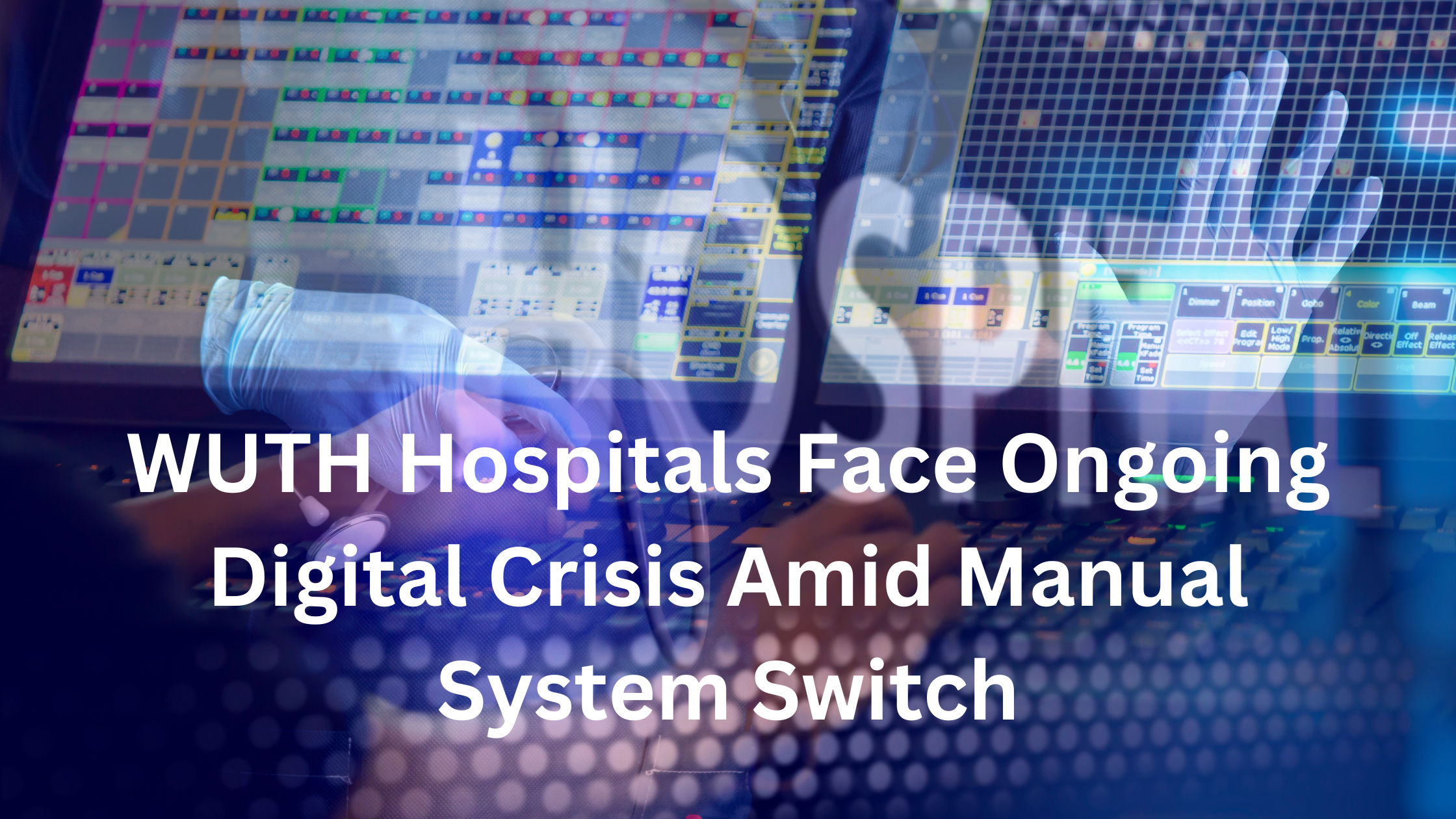Table of Contents
WUTH Hospitals Face Ongoing Digital Crisis Amid Manual System Switch
In a stark reminder of the vulnerabilities faced by healthcare institutions in the digital age, Wirral University Teaching Hospital (WUTH) continues to grapple with the aftermath of a significant cyberattack. The incident, which came to light earlier this week, has forced the major UK healthcare provider to declare a "major incident" status, highlighting the severe impact on its operations.
WUTH, part of the NHS Foundation Trust, oversees three critical healthcare facilities: Arrowe Park Hospital, Clatterbridge Hospital, and Wirral Women and Children's Hospital. These institutions collectively provide a wide array of services, including 24-hour emergency care, acute medical services, surgery, and specialized treatments. However, the cyberattack has thrown a wrench into the smooth functioning of these vital healthcare services.
The attack, described as a "targeted cyber security issue" by WUTH officials, prompted the organization to take swift action by isolating its systems to prevent further spread of the threat. This precautionary measure resulted in several IT systems going offline, forcing the hospitals to revert to manual, paper-based operations in affected areas.
The shift from digital to paper-based systems has had far-reaching consequences. Patients are experiencing longer wait times, especially in the Emergency Department and assessment areas. Some scheduled appointments and procedures have been postponed, causing inconvenience and anxiety among those awaiting treatment. Despite these challenges, WUTH has emphasized that emergency treatments remain a priority.
A WUTH spokesperson stated, "We have reverted to our business continuity processes and are using paper rather than digital in the areas affected." This statement underscores the resilience of the healthcare system but also highlights the significant disruption caused by the cyberattack.
The impact of the attack extends beyond patient care. Hospital staff are facing considerable challenges in their day-to-day operations. An anonymous source revealed to local media that the situation is dire, with no access to electronic records, results, or other critical digital resources. The source described the damage as "huge," indicating the extensive nature of the cyberattack's impact.
As of now, no ransomware groups have claimed responsibility for the attack, leaving cybersecurity experts and law enforcement agencies to speculate about the nature and origin of the threat. This uncertainty adds another layer of complexity to the ongoing crisis management efforts.
The WUTH cyberattack is not an isolated incident but part of a worrying trend in the healthcare sector. Similar attacks have been reported in other regions, including a major data breach in the United States earlier this year that affected millions of individuals. These incidents underscore the urgent need for robust cybersecurity measures in healthcare institutions worldwide.
In response to the growing threat, the UK government is taking steps to bolster the nation's cyber defenses. The upcoming Cyber Security and Resilience Bill, set to be proposed in parliament next year, aims to strengthen the country's cybersecurity framework. This legislative move comes at a crucial time, as the healthcare sector faces increasing digital threats.
Despite the ongoing challenges, WUTH is working tirelessly to restore normalcy. The organization is collaborating closely with national cybersecurity services to investigate the attack and implement solutions. Patients are advised to attend their scheduled appointments unless contacted otherwise, reflecting the hospital's efforts to maintain essential services amidst the crisis.
As WUTH continues its battle against this digital threat, the incident serves as a wake-up call for healthcare organizations worldwide. It highlights the critical need for robust cybersecurity measures, comprehensive disaster recovery plans, and the ability to swiftly adapt to unforeseen digital disruptions.
The WUTH cyberattack is a stark reminder of the delicate balance between technological advancement and vulnerability in modern healthcare. As hospitals and medical facilities increasingly rely on digital systems, the importance of cybersecurity cannot be overstated. The ongoing situation at WUTH will undoubtedly provide valuable lessons for healthcare providers globally, emphasizing the need for constant vigilance and preparedness in the face of evolving cyber threats.
Visit our website to get cybersecurity updates like this, thesecmaster.com, and our social media page on Facebook, LinkedIn, Twitter, Telegram, Tumblr, Medium, and Instagram and subscribe to receive tips like this.
You may also like these articles:
Anthony Denis
Anthony Denis a Security News Reporter with a Bachelor's in Business Computer Application. Drawing from a decade of digital media marketing experience and two years of freelance writing, he brings technical expertise to cybersecurity journalism. His background in IT, content creation, and social media management enables him to deliver complex security topics with clarity and insight.
